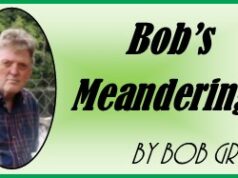International Women’s Day was celebrated earlier this year and there it was indeed cause for celebration. In recent decades, the number of women-owned enterprises experienced the fastest growth over the period from 2005 to 2013, according to Statistics Canada. If you are one of these owners, or thinking about becoming one, you’ll always have a lot to think about when running your business, but there’s also an area you can’t ignore – your retirement.
Specifically, you need to consider establishing your own retirement plan.
Most plans available to you are fairly easy to establish and maintain and are not terribly costly to administer. Here are some popular options:
Registered Retirement Savings Plan (RRSP) – An RRSP is an investment account that is designed to help you save for retirement. RRSP contribution limits for Canadians continue to increase every year. Your allowable contribution is 18% of your earned income from the previous year to a maximum of $26,230 for 2018. You may also be able to tap into any unused contribution room you have carried forward from previous years. Additionally, any income tax paid on RRSP investment growth is deferred until your start income payments in your retirement years.
Tax Free Savings Account (TFSA) – The TFSA is an all-purpose way to invest as it can be used to save for any financial goal. As of January 1, 2019, if you have reached the age of majority, you can contribute up to the maximum annual amount of $6,000. Any unused contribution amount can be carried forward to future years. Your annual contribution is not tax deductible and any growth in your TFSA investments is sheltered from taxation even when the money is withdrawn. You can withdraw TFSA money without paying tax at any time and, best of all, the full amount of any withdrawals can be put back into your TFSA in future years (but not the same year).
Individual Pension Plan (IPP) – An Individual Pension Plan, a type of defined benefit plan, can be set up if you are self-employed or own your own business. This plan has higher contribution limits and your contributions are typically tax-deductible.
Before opening any of these plans, you’ll want to consult with your tax advisor on the tax issues and a financial professional on the investment aspects. But don’t wait too long. You will need to work hard to keep your business thriving – so choose a retirement plan that works just as hard for you.





![Kenopic/Smith Auction [Paid Ad]](https://whitewaternews.ca/wp-content/uploads/2018/10/advertising-100x75.jpeg)

